
Alyssa Casallo
Head of Higher Education and Careers
The Higher Education and Careers Programme at Huili is committed to preparing pupils for a successful future in an increasingly globalised society through an innovative and thoughtful curriculum that is designed to help develop emotional and social skills through self-discovery, independent learning and self-awareness.
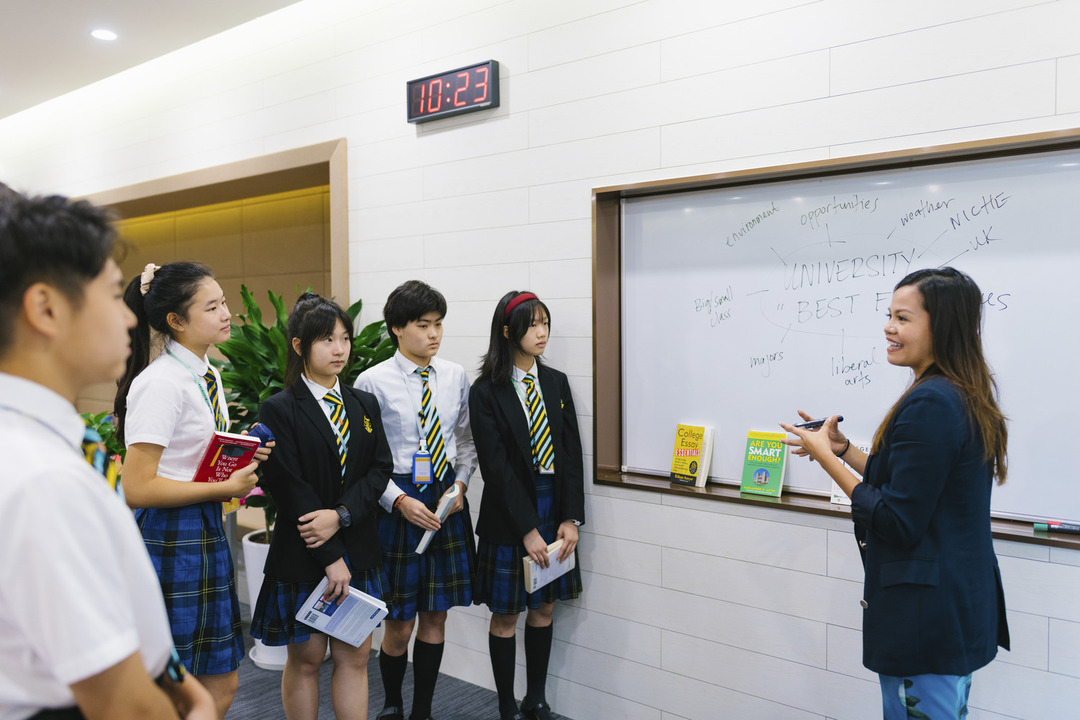
The philosophy for our programme is to foster critical thinkers who are well rounded lifelong learners and young adults. Pupils will explore five different domains: academic, career, personal/social, global, and preventative. Our mission is to help guide our pupils to find their niche and ‘best fit’ university before the application season in Grade 12.

At Huili, we offer a five-year comprehensive programme from Grade 8 to Grade 12. Our higher education pathway offers pupil workshops, course units, career field trips, university fairs, and individualised five-year planning. Parents are important stakeholders in university planning and guidance.
It is pivotal that parents are part of the process and conversations regarding their child’s future planning. At Huili, we believe in having a transparent and trustworthy partnership with parents when guiding a pupil’s future.

Aside from individual meetings with parents, we also offer our Huili parents monthly café talks where we discuss topics such as: UK/US admissions applications, types of universities, Oxbridge insights, and many other relevant topics. These café talks have become a ritual where we see familiar friendly faces and where our parents and team of counsellors can speak openly regarding their concerns and questions about university planning.
Providing accurate information in a timely manner to both parents and pupils is essential to a successful high school career.
Our monthly Higher Education and Careers Newsletter offers a platform for our parents and pupils in the secondary school to be informed of upcoming events, messages from the High School team, and opportunities such as internships, research, webinars, and university fairs.
Each month we focus on a different university, covering the history and a brief overview. We hope this sparks the pupils’ interest and curiosity about different universities around the globe. Furthermore, we invite pupils and teachers to share their own story and to provide insight and guidance to our secondary school parents and pupils.
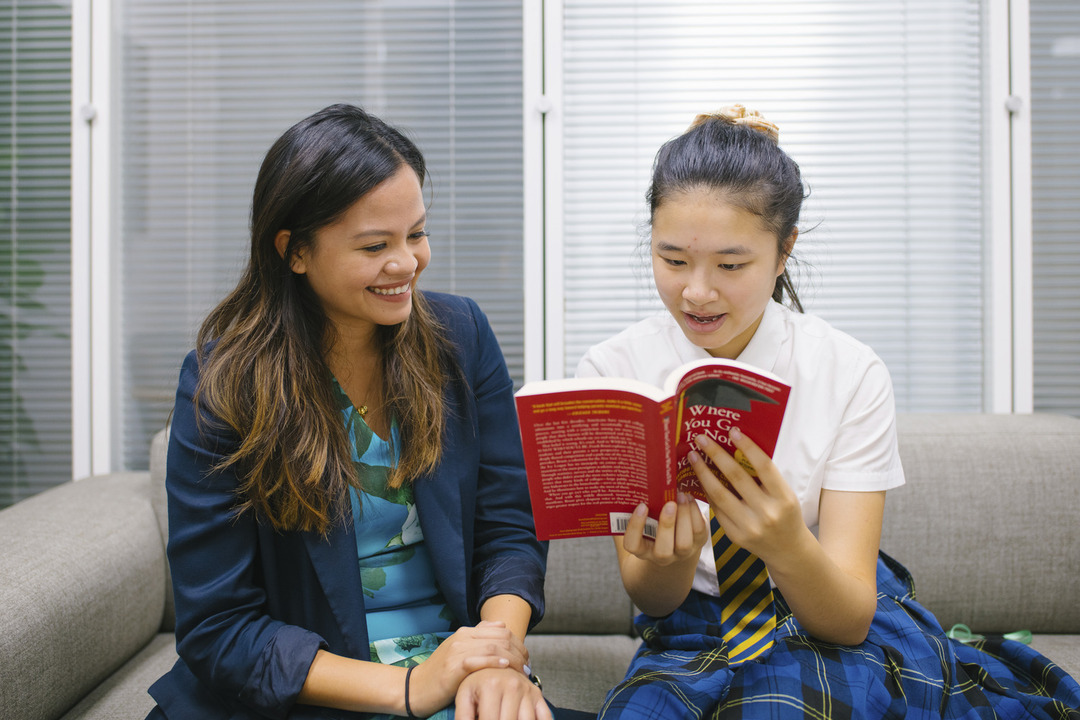
All Grade 8 and Grade 9 pupils are scheduled to meet individually with me at the start of the school year. These preliminary meetings review the pupil’s academic background, possible course choice in the High School, and extracurricular activities. Once we complete the preliminary meetings, pupils can book individual meetings with me regularly. We work together to align their interests and strengths and look for opportunities such as research, internships and pre-college courses.

However, it is also important to understand that it is okay if pupils do not know their interests, skills, passions, or strengths just yet. This does not equate to the pupils no longer being ‘college-bound’. In fact, it is the contrary.
The term ‘college-bound’ means it is a process: a process in which pupils need to be proactively exploring their strengths and interests. This is a perfect opportunity for pupils to explore and tap into different fields and subjects they may not have experienced or considered in the past.

Although the university application process is different for each country, there are many similarities in what universities look for.
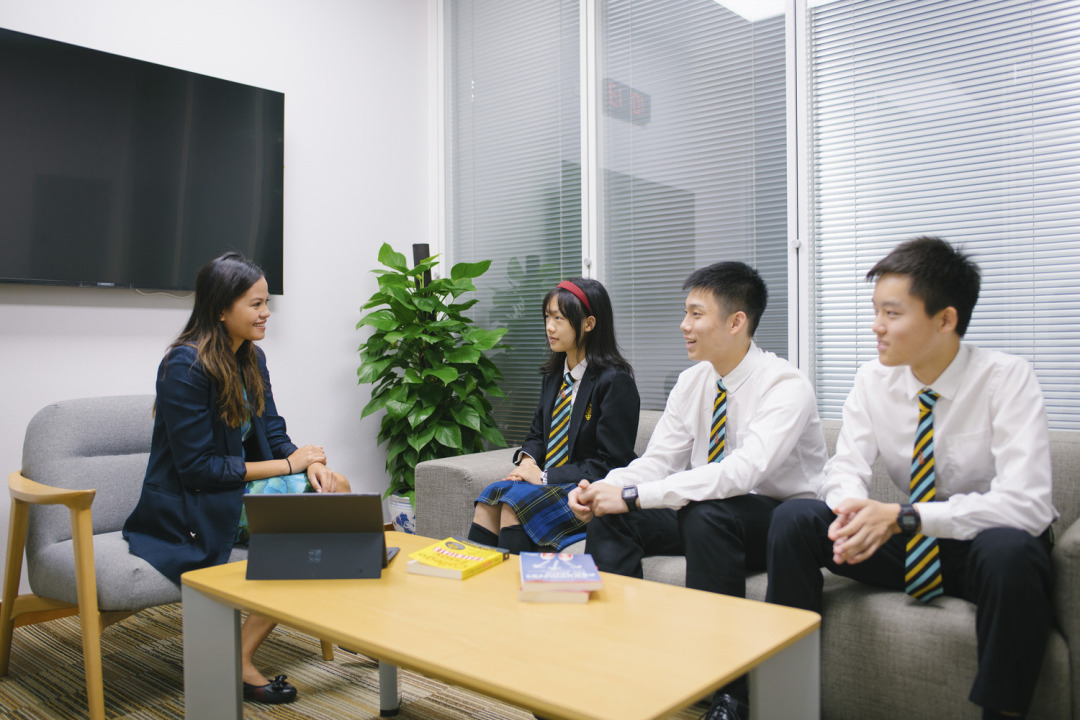
First and foremost, universities will look at a pupil’s transcript and overall grades. The transcript shows what subjects the pupil studied and whether they challenged themselves with their choices. The transcript and the final score are one part of the application but hold the most weight when considered with all other aspects. It is crucial that pupils can manage their time efficiently between their studies and activities in order to achieve the best grades possible.
Secondly, university admissions teams will look at standardised test scores such as SAT/ACT, IELTS/TOEFL, and other exams that are required for specific degrees and universities. Again, these will vary from country to country, university to university and even from course to course.
Next is the college essay, such as the personal statement and the supplementary essay. Depending on the country and university, pupils will be asked to write between 1 and 8 essays in total for one application.
The other aspects that play a role in getting an acceptance letter are recommendation and reference letters, demonstrated interest and extracurricular activities.
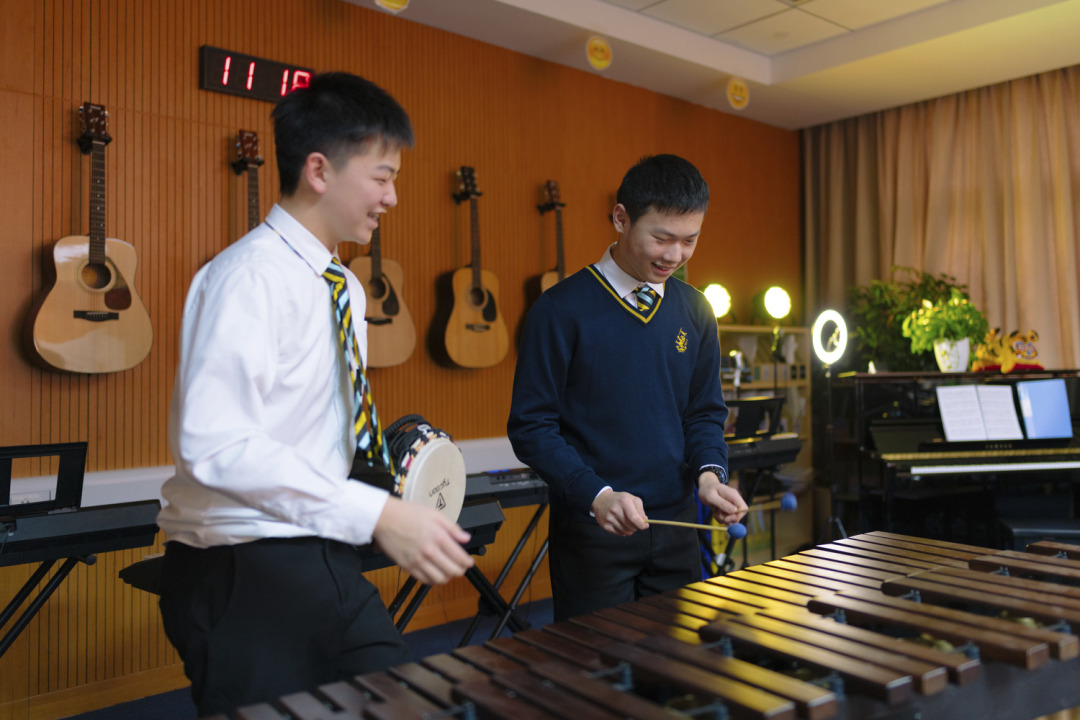
The theme for the first two years of the higher education and careers curriculum is EXPLORATION. This is the time when pupils can make use of their summer and winter holidays. We recommend pupils to take up activities that they are interested in; this could be coding camp, acting and dance courses, painting, debate and many others. Pupils in Grade 9 can look at pre-college courses offered by universities.
We also encourage pupils to volunteer. Through volunteering, pupils can tap into different fields that they could potentially be interested in for the future, gain leadership skills, and, most importantly, develop soft skills that are essential to today’s society.
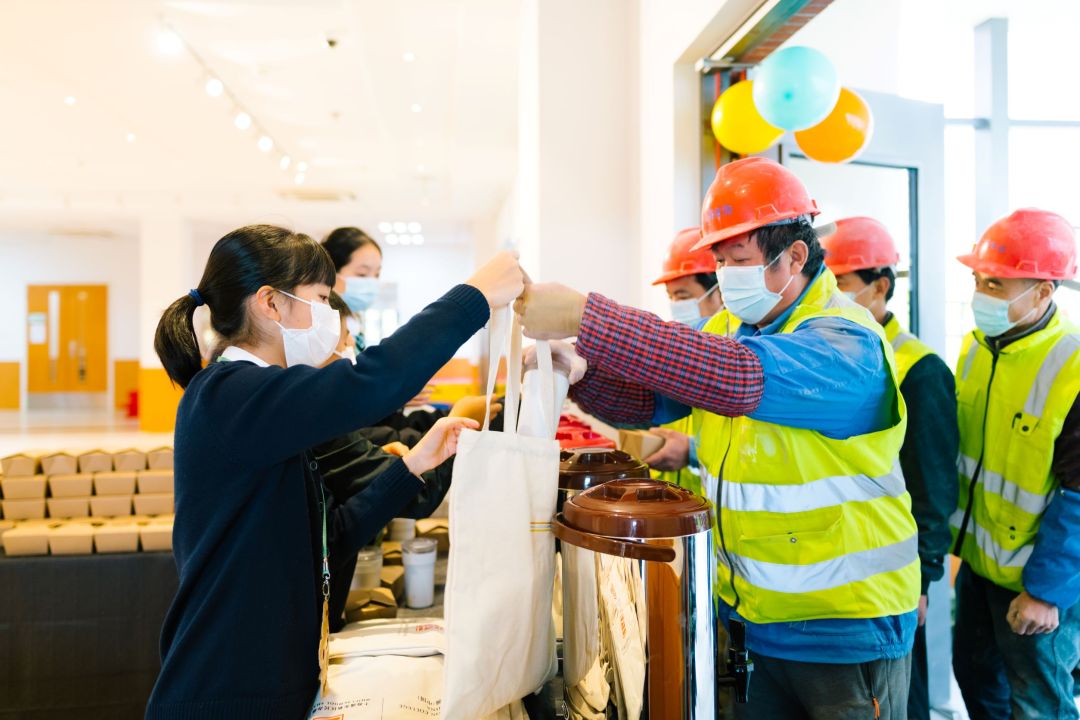
By proactively exploring, pupils can narrow their list of possible degrees and careers for the future. The best situation is if pupils can find their interest and combine it with their skills and then align it with a possible degree or even career. This is the competitive advantage that we hope pupils can find while in high school.

Overall, our programme ensures that pupils’ needs are met and that, on this journey to higher education, pupils become independent and curiosity-driven learners, globalised citizens who are critical thinkers and problem solvers, and, most importantly, well-rounded young adults ready to take on the world.